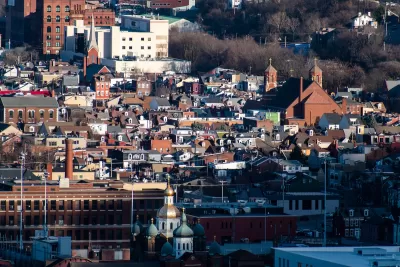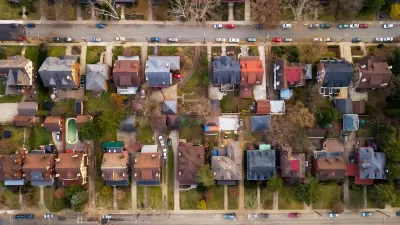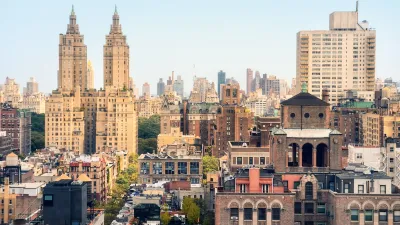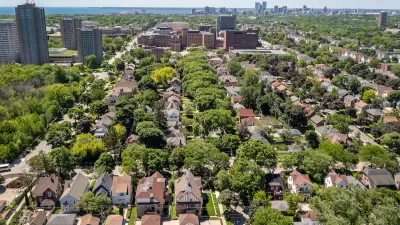The mayor’s plan includes legalizing ADUs in single-family neighborhoods, eliminating parking requirements, and adding new affordability requirements to buildings with over 20 units.

Pittsburgh Mayor Ed Gainey is proposing new legislation to address the city’s housing demand that includes a plan to legalize accessory dwelling units (ADUs) and reduce minimum parking requirements, among other changes.
As Ann Belser explains in Next Pittsburgh, the package would also eliminate lot size requirements for apartment buildings and create new affordability requirements for larger buildings. “The proposed ordinance regarding minimum lot sizes would eliminate the required lot sizes per unit in areas zoned for residential very high density and reduce the lot size requirements for areas zoned residential high and moderate density,” Belser adds.
“As a whole, this package of zoning changes will make it easier and less expensive to build large projects and additional living spaces for our kids and aging parents,” said Councilmember Barb Warwick. Pittsburgh has been making other changes to zoning codes, including permitting personal care homes and shelters in every residential district and increasing the maximum occupancy. Meanwhile, a state law will exempt or defer property tax increases caused by rising neighborhood values.
The proposal also addresses transportation. “To promote travel by mass transit, the administration has proposed creating new transit- oriented districts, which provide tax incentives for developers along the East Busway at Herron Avenue, near South Hills Junction and in Sheridan near the West Busway.”
FULL STORY: Pittsburgh develops plan to address housing shortage

Study: Maui’s Plan to Convert Vacation Rentals to Long-Term Housing Could Cause Nearly $1 Billion Economic Loss
The plan would reduce visitor accommodation by 25,% resulting in 1,900 jobs lost.

North Texas Transit Leaders Tout Benefits of TOD for Growing Region
At a summit focused on transit-oriented development, policymakers discussed how North Texas’ expanded light rail system can serve as a tool for economic growth.

Using Old Oil and Gas Wells for Green Energy Storage
Penn State researchers have found that repurposing abandoned oil and gas wells for geothermal-assisted compressed-air energy storage can boost efficiency, reduce environmental risks, and support clean energy and job transitions.

Private Donations Propel Early Restoration of Palisades Playground
Los Angeles has secured over $1.3 million in private funding to restore the Pacific Palisades playground months ahead of schedule, creating a modern, accessible space that supports community healing after recent wildfires.

From Blight to Benefit: Early Results From California’s Equitable Cleanup Program
The Equitable Community Revitalization Grant (ECRG) program is reshaping brownfield redevelopment by prioritizing projects in low-income and environmental justice communities, emphasizing equity, transparency, and community benefits.

Planting Relief: Tackling Las Vegas Heat One Tree at a Time
Nevada Plants, a Las Vegas-based nonprofit, is combating the city’s extreme urban heat by giving away trees to residents in underserved neighborhoods, promoting shade, sustainability, and community health.
Urban Design for Planners 1: Software Tools
This six-course series explores essential urban design concepts using open source software and equips planners with the tools they need to participate fully in the urban design process.
Planning for Universal Design
Learn the tools for implementing Universal Design in planning regulations.
Ascent Environmental
Borough of Carlisle
Institute for Housing and Urban Development Studies (IHS)
City of Grandview
Harvard GSD Executive Education
Toledo-Lucas County Plan Commissions
Salt Lake City
NYU Wagner Graduate School of Public Service





























